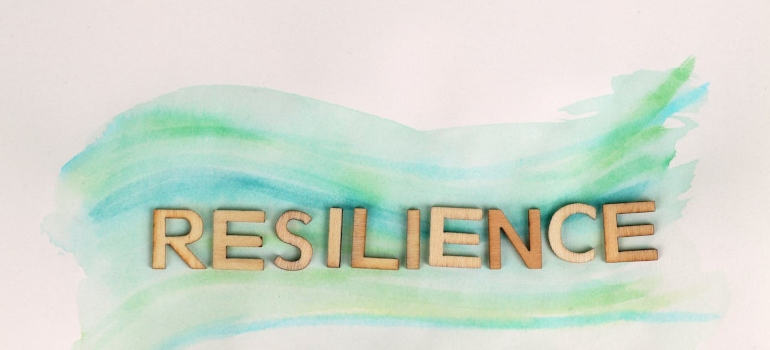Analyzing the complicated link between types of personality and substance use—especially in introverts—helps shed light on a subject that often gets left out of discussions about addiction. Because their tendency for introspection and privacy interacts with outside influences and internal conflict, introverts who use drugs face specific difficulties. For assistance and support to be effective, it is crucial to fully understand this connection. When it comes to addiction treatment centers in West Virginia, these rehab centers are actually where people go to get help for drug-related problems. Through this examination of substance use among introverts, we aim to figure out the insights that will help us understand the issue of addiction better. It will also inform the development of customized approaches that address the specific needs of this issue.
Understanding Substance Use Among Introverts
When trying to tackle the particular challenges experienced by individuals who prefer seclusion and reflection, it is necessary to learn about introversion and the connection it has with substance use. While they frequently feel more isolated and lonely as a consequence of circumstances like retirement, grieving, and declining health, senior citizens may be significantly affected by this pattern. They may be prone to turning to drugs and alcohol as coping methods because of their predisposition to social isolation. Seniors might additionally be at higher risk for the adverse effects of alcohol. It is due to age-associated changes in metabolism and interactions with drugs. Recognizing that the combination of introversion, aging, and substance use can be of extreme importance in terms of specifically customized interventions, such as alcohol rehab for seniors, is essential. By providing targeted support and developing resources, we can empower introverted seniors to develop healthier coping mechanisms.

Social Pressure as a Cause of Substance Use Among Introverts
There is a lot of social pressure to encourage introverts to participate in activities that go outside their comfort zones. Those activities, including going to events where substance usage is common, are something that introverts often encounter. Introverted people may already feel more nervous or uneasy in social settings. That can make a situation more difficult to deal with. Introverts may use substances like alcohol as an escape strategy to alleviate these feelings. However, relying too much on alcohol to help overcome social anxiety can easily lead to drug addiction or misuse. Recognizing the risks associated with this pattern of behavior is essential so that you can get help while on alcohol rehab WV. This type of customized treatment can be extremely beneficial for your long-term recovery.
Self-Medication and Introversion
Drug or alcohol abuse becomes a form of self-treatment for many introverts, providing some relief from their duties, stress, depression, or other mental health issues. Substances are appealing because they may offer introverts a brief reprieve from the overwhelming emotions and thoughts that consume them. Self-medication offers them a temporary escape from the inner conflict that affects them. However, using drugs as a coping mechanism may result in dependency and addiction very quickly. If it becomes like that over time, that might worsen underlying mental health conditions. Understanding the potential negative aspects of this coping mechanism highlights just how important it is to look for specific solutions, such as individual therapy for addiction.

Coping Mechanisms for Introverts
There are alternative methods of coping offered to introverts who deal with loneliness or social anxiety without abusing drugs. Rather than turning to drugs, introverts can find peace and revitalization by doing activities that appeal to their introverted tendencies. Those activities are journaling, reading, or spending time outdoors. These pastimes provide introverts with an opportunity to reflect on who they are, relax, and connect with their inner selves. Connecting with our inner selves can lead to feelings of contentment and calmness. Furthermore, getting help for addiction from trustworthy individuals, such as relatives, close friends, or mental health specialists, can enable introverts to increase their resistance to the temptation of substance abuse. By embracing these alternative coping mechanisms while also establishing a solid support network, introverts can manage life’s challenges with greater ease and confidence.
The Importance of Education and Support in Substance Use Among Introverts
Education and support are of vital importance when it comes to addressing substance abuse among introverts. Providing introverts with insight into the dangers of substance abuse and other coping mechanisms gives them the power to make choices about their health and well-being. When people are given resources and skills, they are capable of dealing with their challenges freely and with greater awareness. Additionally, creating a warm environment that respects and accepts the preferences of introverts allows them to feel valued and connected. That results in lessening their feelings of loneliness and seclusion. Within these caring surroundings, open communication lets introverts ask for support while developing relationships with people they can relate to. Through encouraging knowledge and providing assistance, we help introverts make better decisions. Also, we promote a culture in which they feel accepted and appreciated.
Building Resilience and Self-Awareness
Developing a strong sense of self-awareness can help introverts identify their triggers and vulnerabilities. By identifying their triggers, they will feel empowered and thus make conscious decisions about their behaviors and coping mechanisms. Once they understand these internal cues, introverts can proactively recognize and address potential stressors before they escalate. Building resilience further enables introverts to recover from setbacks and challenges without turning to substance use as a coping strategy. One of the great methods is art therapy. Art therapy will help introverts develop their mindfulness, resilience, and self-awareness. Investing in personal growth and self-development helps introverts be more resilient. Hence, healthier ways to manage life’s ups and downs can be created.

The Role of Mindfulness and Stress Management
Practicing mindfulness and stress management methods plays a crucial role in helping introverts build resilience and self-awareness. Mindfulness means that you are actually present in the moment while also acknowledging your thoughts and feelings without judgment. For introverts, mindfulness can help identify triggers of stress and anxiety. Mindfulness allows introverts to address these feelings before they become overwhelmed. Stress management methods, such as deep breathing exercises, yoga, and intense muscle relaxation, can also be extremely beneficial. These approaches help introverts maintain a sense of calmness and control. It reduces their urge to use substances as a coping mechanism. By including mindfulness and stress management into their daily routine, introverts can establish a healthier, more balanced approach to handling life’s challenges.
Building a Supportive Network
Creating and maintaining a supportive network is another crucial part of building resilience and self-awareness for introverts. Friends that they can trust, family members and mental health professionals can provide immense support and encouragement. These individuals can offer a safe space for introverts to express their feelings and worries thus helping them to alleviate the sense of isolation that often goes hand in hand with introversion. Support group therapies, both in-person and online, can also provide a sense of community. This network can act as a protector against stress and provide practical tips and emotional support. By surrounding themselves with understanding and empathetic individuals, introverts can improve their resilience, boost their ability to cope with stress and avoid substance use. This supportive environment empowers introverts to handle their challenges with greater confidence and assurance, cultivating long-term well-being and sobriety.

The Role of Peer Support in Recovery
Peer support plays a significantly important role in the recovery process for introverts dealing with substance misuse. Creating connections with others who have similar experiences can provide a sense of belonging and deeper understanding. That is particularly important for introverts, who may feel misunderstood or secluded. Peer support groups, both offline and online, offer a safe space for introverts to share their experiences, challenges, and successes without fear of judgment. These groups can help introverts build meaningful relationships and learn from the experiences of others who have already walked the same path. Introverts can also gain practical tips, emotional support, and encouragement. All of those are essential parts of a successful recovery journey.
Advocating for Change
Fighting for change in society’s standards and attitudes towards introversion and substance use is vital for cultivating understanding and acceptance. By challenging stereotypes and breaking misconceptions about introverts, we can create a more inclusive and supportive environment. This involves educating the public about the unique personality traits and needs of introverts. Also, it includes an explanation of how these factors overlap with substance use. In addition, advocating for policies and initiatives that prioritize mental health education and access to treatment can highlight the underlying causes of substance use among introverts. Such efforts might include raising awareness regarding mental health. In that way, by raising awareness, we are ensuring equal access to mental health services for all. By being the driving force of positive change, we can empower introverts to embrace their unique traits, live fulfilling lives, and never become addicts.

Engaging Communities and Institutions
Including institutions and communities is essential to advocating for change regarding introversion and substance use. Schools, workplaces, and local organizations can play an essential role by implementing programs that advocate for understanding and support for introverts. Educational institutions can implement mental health and personality education workshops into their programs. In that way, they will be helping students identify and respect different personality traits from an early age. Workplaces can provide training for managers and employees. We think of trainings, such as how to create safe and inclusive environments that will meet the needs of introverted individuals. That type of engagement will reduce stress and the potential for substance use as a coping mechanism. Community centers can offer workshops and support groups specifically customized for introverts, providing safe spaces for connection and self-expression.
Seeking Professional Help for Introverts
For introverts struggling with substance use, seeking professional help is incredibly important for their overall mental health. Medical professionals can provide personalized treatment plans that specifically address the unique needs of introverts. By combining therapy, medication, and support groups, introverts can finally see the light at the end of the tunnel. In addition, whether the therapy is online or in some of the best clinics that provide top-notch levels of care, the idea is that the introvert feels understood and accepted. Accessing support conveniently and comfortably from the privacy of their own homes is a great option for them as well.

Overall Analysis of Substance Use among Introverts
Introverts are more prone to substance misuse, and that is a fact. However, it is a rather complex issue, influenced by various factors. Some of those factors are social pressure, self-medication, and different negative coping mechanisms. By understanding the overlap between introversion and substance use and providing education, support, and access to professional help, we actually help a lot of the introverted community. In that way, we actually empower introverts to make healthier choices and break free from the vicious cycle of addiction. Together, we can create a more inclusive and supportive society where introverts feel understood, accepted, and motivated to express their best selves. It is rather difficult since there are “bigger” issues regarding substance abuse, and the introverted community often remains left out. However, we are here to show that our society can be mature enough to put issues of introverted people on the list, too.
References:
https://www.ncbi.nlm.nih.gov/pmc/articles/PMC10325878/



